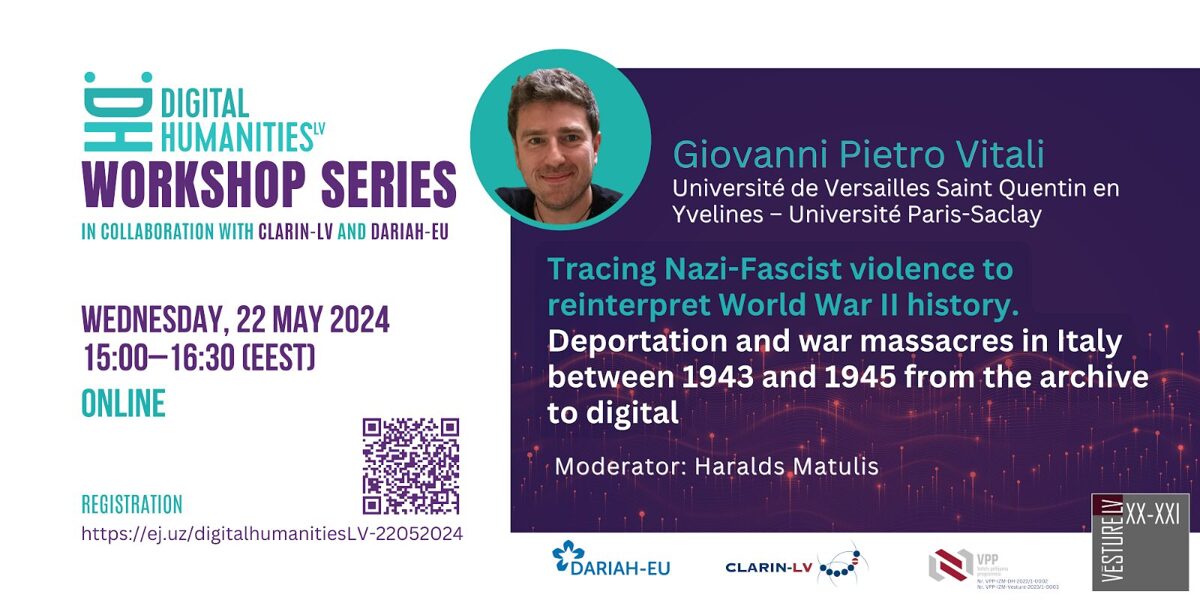Webinar “Tracing Nazi-Fascist violence to reinterpret World War II history. Deportation and war massacres in Italy between 1943 and 1945 from the archive to digital”

On 22 May at 15.00, the second seminar in the digitalhumanities.lv series, organised in collaboration with CLARIN-LV and DARIAH-EU, focusing on digital humanities and historical research, will take place online. The aim of this webinar is to reflect on the work of the historian faced with his sources and the possibilities offered by digital tools. It presents a 5-year work on archival sources on the violence inflicted on the civilian population in Italy between 1943 and 1945, carried out using data visualisation methods. The findings of this research, carried out with the major institutes of historical memory of the Second World War in Italy, will be presented but, above all, we will pose a methodological reflection for all participants, trying to share how the digital can confirm or question historiography.
Giovanni Pietro Vitali holds a PhD in Linguistic Sciences from the University for Foreigners of Perugia and in Italian Literature from the Université de Lorraine, as part of an international doctoral thesis cotutorship programme. He is Associate Professor in Digital Humanities at the Université de Versailles Saint-Quentin-en-Yvelines – Université Paris-Saclay and secretary in the board of Humanistica, the Francophone association for Digital Humanities. Since 2018 he has been associate researcher at the University of Oxford where he is the Digital Humanities advisor of the Prismatic Translation project (https://prismaticjaneeyre.org/). His main research interests focus on: Digital Humanities, Contemporary History, Linguistics, Onomastics, Contemporary Literature and Cultural Studies.
The working language of the seminar is English.
To get a Zoom link, please register: https://ej.uz/digitalhumanitiesLV-22052024
The seminar is organised within the project “Navigating the Latvian History of the 20th–21st Century: Social Morphogenesis, Legacy and Challenges” (VPP-IZM-Vēsture-2023/1-0003) in collaboration with the project “Towards Development of Open and FAIR Digital Humanities Ecosystem in Latvia” (VPP-IZM-DH-2022/1-0002).